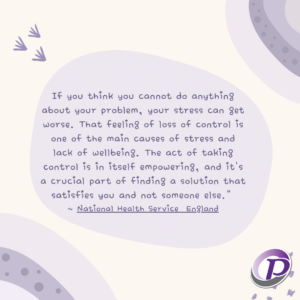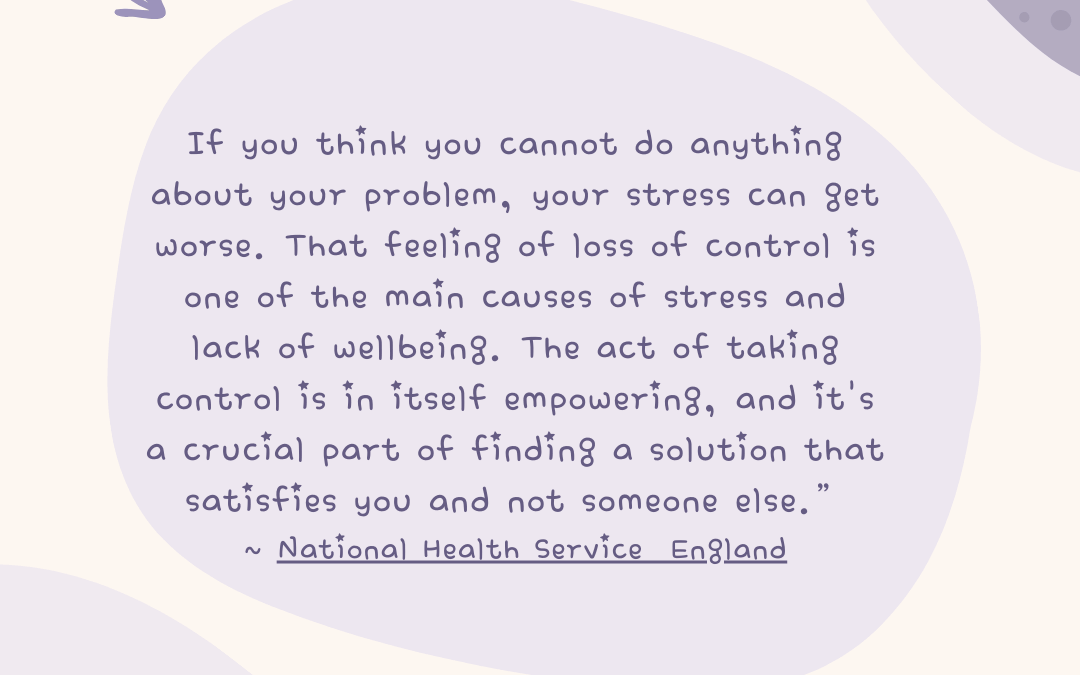
2 min readTake Control
by Guy Gage | March 10, 2024 | Business, Leadership, Personal Management

The Reality
All professionals encounter stress when life is the busiest and most compressed. As those seasons progress, it is easy to feel less and less in control. A large workload, uncooperative clients, under-performing staff, and looming due dates only exasperate the situation. By the time the season is over, major recovery is needed. Mostly because we don’t take control.
The Effects
Feeling out of control generates a stress response. Cortisol hypes you up and doesn’t let up. Extended cortisol release without relief causes a host of physical and mental ailments. But when we take control, cortisol reduces because we aren’t in a fight or flight mode, so we feel better, act with more confidence and exercise better judgment.
The Strategies
This is another reason to keep your act together throughout your season. That’s why we make every effort to in optimal control, in the midst of so many “uncontrollables.” These strategies you already know about and use. Maybe you can assess how well you are using them.
- Let Go. Feeling like you have to be in control is a cognitive distortion. Total control is an illusion that you will never attain. Give yourself permission to function in situations in which you have less control.
- Get organized. When you make the effort to sort your week and your work, it relieves feeling out of control. It is stress-inducing to enter into situations feeling disorganized. Take the time to regularly organize and reorganize as needed.
- Plan and prepare. As much as you can, be diligent to get the information and skills you need to do the work. You frustrate yourself when you expect to get your work done without having the necessary resources. Go the extra mile to get what you need, for your sake.
- Assess priorities. Things change. What you expected to accomplish this week will change a time or two. As Stephen Covey said, “The main thing is to keep the main thing the main thing.”
- Remaining flexible with your time and priorities is paramount. Relax and make the necessary adjustments that will keep you focused on the right things right now. Mental flexibility is fairly mandatory in this profession.
- Being clear with others is helpful because you aren’t pressured by their unspoken expectations and assumptions. Misunderstandings are very stressful to those who are conscientious about their work. Make an effort to consistently communicate.
Your Commitment
As I already noted, you use of all these strategies to a degree. They are proven practices that will help you gain a sense of control over your life and your work. But which one should you pay more attention to that may be lagging? You know what you need to get a better grip. Take a moment and commit to doing one thing that will help you take control. Now. For your sake.
Read Related Blogs:
Leading with Certainty: Anchoring Leadership in Vision and Values
Effective leadership is grounded in the certainty of what is known: the long-term vision, enduring values, and guiding principles that define an organization’s identity. In a recent coaching conversation with a senior leader navigating a period of rapid change, this...
Courageous Leadership: Understanding Fear in Times of Change
In the midst of writing last week’s Monday message, I was preparing to facilitate a session titled Courageous Leadership: Navigating Change, Fear, and Uncertainty. During that session, one of the attendees questioned the use of the term fear. She didn’t feel that fear...
Navigating Change: Leading with Strength and Vision
Change can feel unsettling, but great leaders know that navigating uncertainty requires two critical elements: certainty and relatedness. When people feel secure in their direction and connected to those around them, they can embrace transition with confidence. Create...



